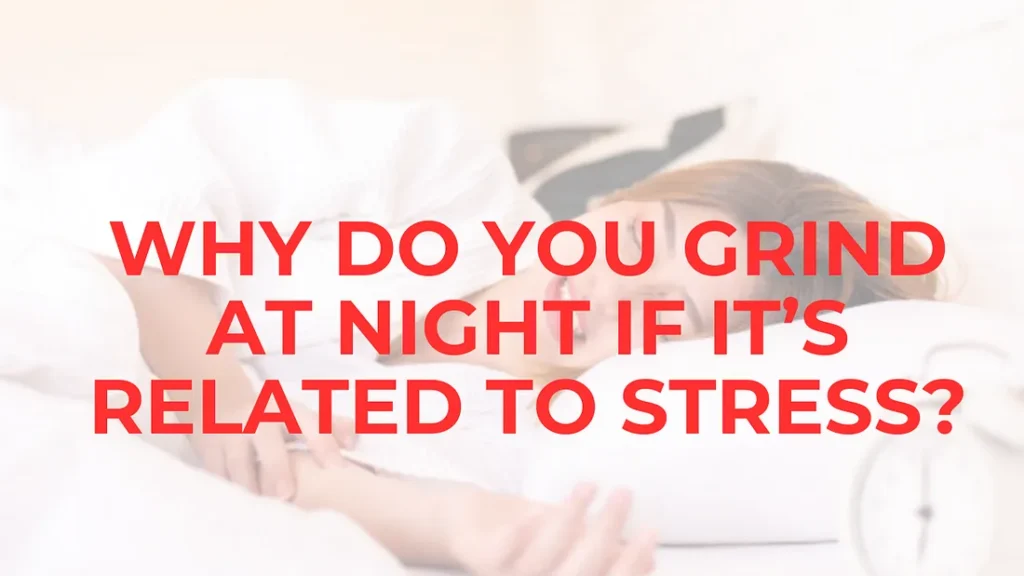Book Appointment Now
Psychology of Bruxism: Why Do You Grind your Teeth at Night if It’s Related to Stress?

I’d like to answer this question someone asked: if it’s related to stress, why do I grind my teeth at night?
Some experts may have explained that it’s because of breathing or something like that, but I’m not going to look at that. I’m going to focus on whether it’s related to stress and why sometimes you grind your teeth at night.
What happens is that the stress triggering this chronic teeth grinding is suppressed stress. During the day, when you are busy with work, traffic, studying, or just moving up and down, this stress is numbed out because you are distracting yourself from it. Your mind is distracted from seeing the stress, which is deep within you. When your mind is distracted, the teeth grinding, a coping mechanism that normally arises when you’re stressed, is silenced.
However, at night, all the stresses of your day and the unprocessed stresses come to the surface because that is when you relax. When you relax, all the thoughts you mostly avoid, like negative aspects of your life, come to the surface. Because of this, when you are sleeping, the mind resorts to its normal coping mechanism, teeth grinding, to help you release stress or provide temporary relief.
The stress doesn’t go away during the day; it’s just suppressed and finds other outlets to express itself, like overworking. During the day, you may find yourself overworking, angry, or doing other things. At night, for most teeth grinders, the stress manifests as teeth grinding to release the tension. When you distract yourself during the day, the tension is not visible, so the mind does not lead you to grind your teeth.
Another aspect is that the more you grind your teeth without dealing with the stress, sleeping itself becomes a trigger for the grinding. Initially, the mind uses this coping mechanism to release and process stress, provide temporary relief, or numb out the stress. However, as you keep doing it, the mind associates sleeping with teeth grinding.
Yes, it may be explained from a medical perspective, such as breathing issues, but stress also plays a part. Before concluding that this is a medical issue requiring surgery, approach it from the perspective of dealing with the underlying stress. By dealing with the underlying stress, you can save on costly surgeries and improve your overall sleep quality.
Try holistically dealing with the stress that may be triggering or exacerbating the condition, then monitor your sleep. You’ll realize that your sleep and your day will get better because you are communicating to your mind that you can manage or cope with daily stresses in a healthy way.
Sleep and bruxism may occur because of unprocessed stress coming to the surface. I hope you found this informative.






